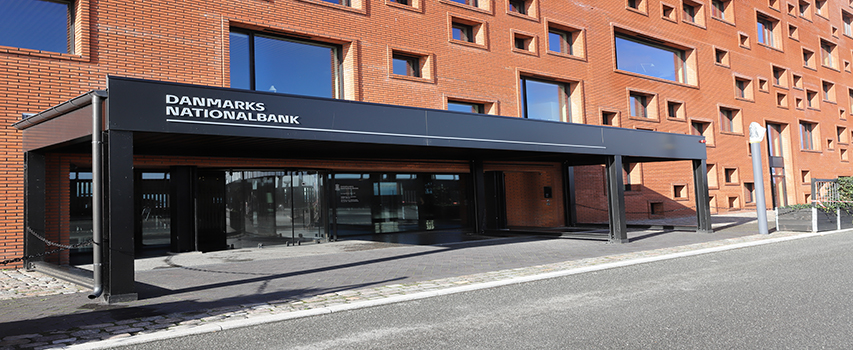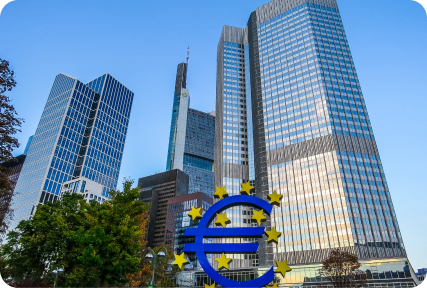- Phone: +382 68 45 77 45
- Email: info@alt-industry.com
- Address: 10 Njegoseva, Herceg - Novi, Montenegro
Investment license in Denmark
Denmark is one of the most promising for investment countries in the world, which is characterized by a modern model of market economy and a developed agricultural sector. High-tech equipment and the application of advanced technologies in various industrial spheres have managed to bring the state to the leading positions in the ratings for electronics, engineering, pharmaceuticals and food products.
The policy of the Danish government stimulates the inflow of foreign investments and creates favorable conditions for company registrations and business activities. Such a loyal business environment attracts many companies from other countries of the world to open branches and develop their business in the local jurisdiction. The stable economic situation and government support at every stage of entrepreneurship create favorable conditions for foreign investment.
Forms of business conduction in Denmark
Danish legislation offers one of the most accessible models of business organization for foreign investors. The state does not impose any requirements regarding the citizenship of the managers and founders of the company. At the same time, the procedure of company registration is conducted completely online and does not require personal visit to Denmark.
The most common forms of legal entities in the state:
- Stock company A/S.
This is the Danish equivalent of a joint stock company, in which the share of responsibility is distributed among the owners of the company’s shares. It is suitable for small and medium-sized businesses that plan to work with the Copenhagen Stock Exchange. The structure of the company provides for the creation of a two-tier management system: it is obligatory to have a CEO and a supervisory board of three people. - Danish ApS Company.
This legal entity format is a closed joint stock company whose shares are not publicly traded. ApS is used mainly for small and medium-sized businesses. In order to organize the company, you will need to register the legal entity with the Danish Commerce and Companies Agency. - SMBA Organization.
This form of legal entity is the most optimal for foreign investors who plan to conduct transnational business. SMBA is an analogue of a limited liability company, which can ensure full confidentiality of corporate information and at the same time does not provide for large costs for the organization of the firm.
Stages of opening a legal entity in Denmark
The procedure of company registration for foreign founders in the Danish jurisdiction consists of several steps:
- Preparation of documents.
Foreign entrepreneurs will need to draw up a deed of association for the company, as well as a memorandum. To minimize the cost of a translator, you can prepare the documents in English. - Account opening.
A corporate account must be opened in a Danish bank. You will also need to deposit the amount of the authorized capital. - Registration of the company.
The representative of the company should apply to the Danish Business Authority with corporate data. - Payment of fees.
At this stage, it will be necessary to obtain a registration number and pay the state fees for the foundation of the company. - Obtaining a tax number.
Business owners should also contact the local tax agency on behalf of the legal entity to obtain a payer number. - Issuance of a license.
If the company’s activities, according to Danish law, require a license, a request for this permit should be made.

Types of licenses in Denmark
It is possible to ensure the financial activity of the company in the legal framework of Denmark by obtaining the appropriate license. To do this, entrepreneurs will need to apply to the Danish Financial Services Authority (DFSA) with an application. A separate document is not issued to business owners – as a positive consideration of the request, the name of the company and the list of services for which authorization is granted will be published on the DFSA website.
In the future, the firm may engage only in those types of financial activities for which the license is open. In Denmark, the following types of authorizations are issued to businesses:
- banking;
- trading;
- brokerage;
- lending;
- investment;
- payment;
- crowdfunding.
Banking sector
Danish companies that plan financial activities are required to obtain a license for deposits and lending. In the latter case, restrictions are only related to the law “On Measures for the Prevention of Money Laundering”. Licensing of banking activities is regulated by the Financial Business Act.
Payments and digital funds
Companies that issue digital money units and payments are required to obtain authorization. Some network products are exempted from this requirement, but are still required to disclose activities, pay set fees and comply with criteria:
- the financial instrument does not load more than 3,000 DKK (Danish kroner);
- it is not possible to reload the instrument;
- the issuer’s outstanding liabilities on digital monetary units do not exceed EUR 5 million.
Currency transactions
If a company conducts transactions in different currencies and its bank does not have the appropriate license, the firm must obtain permission separately. Exceptions are organizations for which currency transactions do not exceed 5% of turnover. In this case, it is important to formalize such activities as auxiliary to the main activity.
Insurance
The issuance of policies and the provision of insurance services is subject to licensing in the Danish jurisdiction, regardless of the name of the company or its core business. Intermediary services do not need to be authorized if only ancillary advisory activities are performed. That is, the company redistributes clients for insurance to other institutions that are licensed.
Financial consulting
Danish law sets up the licensing of companies providing financial advisory services. For example, credit agreements, excluding deposits, home loans, insurance, investments, and pension products.
Scope of investments
Depository and investment services are subject to licensing under Danish law. Only companies that already have a valid license for this type of financial activity have the right not to obtain a separate permit. Firms that provide investment advice may also accept and pass on orders to partners.
This category of license includes the right to conduct transactions with securities, units, shares in collective investment projects, deposits, guarantee certificates, and mortgage agreements.
Basic services of investment companies:
- investment banking operations;
- lending and loans for companies and individuals;
- issuance of letters of credit and certificates of guarantee;
- management of company assets under a trust.
Alternative investment funds
To manage the company’s assets, Danish law allows to establish a fund and get a separate license. Usually, a manager is hired to ensure efficient operation. The minimum amount of capital that allows authorizing the operation of the fund is 100 million EUR.
Taxation in Denmark
The following types of taxes apply to legal entities in the state:
- corporate income tax – 22 %;
- personal income tax – up to 56 % (52 % personal income tax + 8 % labor market tax);
- value added tax – 25 %;
- inheritance and gift tax – 15%.
Some businesses in Denmark are subject to a higher corporate tax. For example, companies in the gas and oil industry are obliged to make contributions to the budget of the country in the amount of 25% of the company’s income.
There are tax exemptions for organizations that work in the field of education, transportation of people, provide insurance and financial services. There is no VAT for firms in this sphere.
The tax system of the state provides for the submission of annual reporting with the indication of all partners. In case of violation of this rule, an official warning is provided, and in subsequent cases – the closure of the enterprise. In case of late filing of reports, providing false data or non-payment of taxes, penalties are applied.
You can get a consultation from Altindustry specialists on the issues of company registration in Danish jurisdiction and choose the best option of legal entity to reduce the tax burden. The lawyers will provide full support for the implementation of the business project from scratch to the first transactions, as well as help to organize the work of the office, opening a corporate account and obtaining a license.
Frequently asked questions (FAQ)
How is data privacy ensured in companies in Denmark?
Companies in this country are guided by generally accepted European standards for the protection of personal data and apply cybersecurity technologies in data processing.
When it`s possible to work without a license in Denmark?
Fintech companies are not obliged to obtain a special license unless such a license is required by the applicable laws of the country. Generally, a license is not required for financial leasing, custody and management of securities, deposit taking and lending.
Are there any notarial acts when registering a company in Denmark?
No. Starting a company is done online through an informal and accessible procedure.
Does any of the founders of the company should be a resident of the state?
No. There are no citizenship or residency requirements for company founders in Denmark.
Related articles

Most entrepreneurs who have entered the international market have appreciated the potential of non-fiat money as a reliable financial instrument. To use the advanced technologies in the Fintech world in the legal field, it is important to obtain a special license for cryptocurrency in the chosen jurisdiction.
Read more
A low-tax bank is a financial institution that is registered in a jurisdiction that has favorable conditions for company formation, low lending rates and a high degree of personal data confidentiality. A state that protects banking secrecy and offers favorable tax rates for non-residents is chosen to establish a low-tax credit institution.
Read more
Cyprus is one of the most popular European countries for registration of residence of legal entities because of its flexible tax system, existing benefits for business and loyal conditions for immigration of foreign investors. Due to the fiscal advantages, the capital of many international corporations is concentrated on the island, which confirms the high rating of confidence in this jurisdiction.
Read more